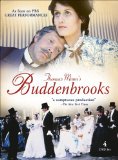| Reviews & Columns |
|
Reviews DVD TV on DVD Blu-ray 4K UHD International DVDs In Theaters Reviews by Studio Video Games Features Collector Series DVDs Easter Egg Database Interviews DVD Talk Radio Feature Articles Columns Anime Talk DVD Savant Horror DVDs The M.O.D. Squad Art House HD Talk Silent DVD
|
DVD Talk Forum |
|
|
| Resources |
|
DVD Price Search Customer Service #'s RCE Info Links |
|
Columns
|
|
|
Buddenbrooks
As I wrote in my review for McLeod's Daughter: The Original Movie, it looks as if E1 Entertainment, which now owns many Koch Vision titles, is re-packaging some of those great films, including Buddenbrooks, the epic 1979 German television adaptation (seen here on PBS' Great Performances) of Thomas Mann's masterpiece work. I originally reviewed Buddenbrooks as part of Koch's larger The Thomas Mann Collection a few years ago (it looks as if E1 is releasing the other two titles - The Magic Mountain and Doktor Faustus - separately, as well), and I assumed that the same transfer would be used here for this release. Unfortunately, I noticed that the PAL conversion problems have not been corrected from that earlier transfer -- a distraction that will affect your buying decision.
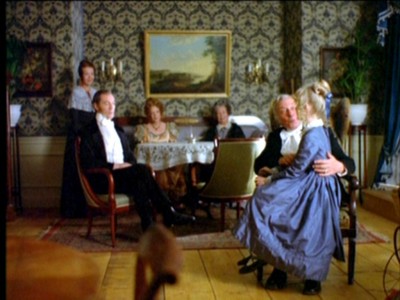
As I wrote in my earlier review, a long-form, multi-episode foreign television production like Buddenbrooks provides a rich viewing experience for the adventurous - and patient - DVD viewer. Some viewers may be turned off by the use of English subtitles, or the deliberate, languorous pacing of the film (or the less-than-optimal DVD transfer). But the benefits of seeing a rare German TV adaptation of such a work can outweigh those factors. The last time I tried to tackle Thomas Mann was back in college. When I told a friend how much I had enjoyed Katherine Anne Porter's novel Ship of Fools, she suggested I try "the real deal," The Magic Mountain. Having just plowed through Porter's behemoth, I wasn't really ready for another gigantic, heavy, existential cry of pain, so I bailed about a third of the way in. But Buddenbrooks did what all good cinematic adaptations should do: it stood as an entertaining film in its own right, and it made me want to go back and read the original source novel.
While there isn't space here to even give a sense of the intricate plot or myriad characters in the twelve hour Buddenbrooks, I can give you a ridiculously sketchy idea of where the story goes. Buddenbrooks chronicles the inevitable physical, spiritual and financial decline of a wealthy, influential merchant family in the mid-to-late 19th century city of Lubeck, Germany. The Buddenbrooks family, led by Johann, Sr. (Carl Raddatz), is a proud member of the waning Hanseatic League of business guilds, providing shipping and exporting for grains and other farm products. Their company has been in business for decades, and it has attained a reputation for sterling honesty and integrity, which Johann, Sr. takes care to impart to his son, Johann, Jr. (Martin Benrath). All familial duties are seen in light of how they may affect the company; lives within the family are always to be led with the company's best interests at heart - first, last and always.
When Johann, Sr. dies, it is up to Johann, Jr. to carry on the family business and uphold their personal reputation. As with most family dynasties of this period, the head of the clan always looked forward, nurturing sons and daughters to be either productive members of the business, or in the case of daughters, properly wedded off to socially desirable - and profitable - suitors. Johann must cope with his daughter Tony's (Marion Kracht) disastrous marriage to swindler Grunlich (Michael Degen), as well as ne'er-do-well son Christian (Alexander Stolze), a sensitive child who soon becomes a starry-eyed dreamer with absolutely no aptitude for business. Fortunately, Johann has son Thomas (Michael Kebschull), a dedicated businessman who learns the family ropes early, and clearly looks to supersede even Johann's great success. But events, both historical and spiritual, conspire to work against Johann's plans. While the business continues to prosper, fatal flaws within Thomas eventually spell potential doom for the business, as well as in his dealings with his brother, his wife Gerda (Noelle Chatelet), and his sensitive, weak son Hanno (Adem Rimpapa). As the 20th century rapidly approaches, the Buddenbrook family and business look considerably changed from our first view of this vigorous, prosperous family.
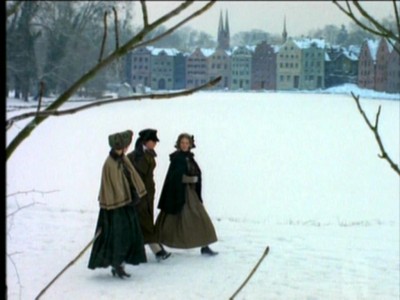
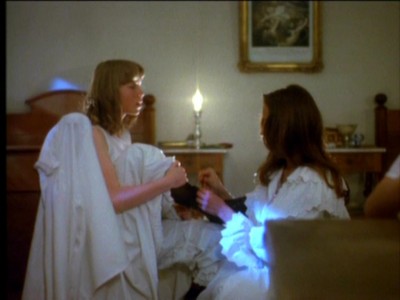
Having never read the book, I can't claim any special knowledge of what is or isn't left out of this long, long TV miniseries adaptation. What I can say is that Buddenbrooks, clocking in at almost eleven hours, has the stately "great novel" pace and tone necessary (and I believe analogous to the original work) to bring forth a sense of rumination for the viewer. This is an epic, though certainly not in action or even in passionate romance or what we might first think of in terms of melodrama. Buddenbrooks is an epic of historical inevitability, the grinding, remorseless march of time that renders this family a shell of its former glory. Rendered in a realistic, almost documentary style, Buddenbrooks ironically chronicles the battle between family members in the Buddenbrooks clan who want to be free of any obligations to the company, and those members who ultimately feel trapped within their company obligations. What's interesting is that both groups wind up on the losing end. Christian and Tony lead wastrel and unfulfilled lives, respectively, without love or direction, while Thomas is figuratively crushed by the growing weight of his responsibilities, which are made lethal when he forgets the moral lessons of his father during a crucial business deal.
Indeed, Buddenbrooks is particularly strong at showing how almost every single human dealing in the family is first filtered through monetary considerations. Marriages are arranged and broken up due to money; positions in life are determined by positions in business, and personal happiness, regardless of intent or not, are largely determined by how well the omnipresent company is faring in the business world. Buddenbrooks achieves this only through its determination to linger over the finest details. Having twelve hours running time to play with, director and screenwriter Franz Peter Wirth (along with co-screenwriter Berndt Rhotert) can fully develop a hyper-realistic atmosphere by showing even the smallest, most telling dramatic moments. For example, there's a particularly long scene where the details of Johann, Sr.'s will are read. Not only are facts and figures of the will detailed, but the personal animosities of the characters are given time to develop over the scene, creating a quiet, but immensely powerful moment. While this kind of stately narrative pace isn't to everyone's taste, it very closely approximates the experience of reading a big novel like Buddenbrooks, and with its careful attention to detail, along with an inexorable, expertly crafted sense of impending doom, Buddenbrooks is that rare long film epic that seems to get shorter the more you become engrossed in its dramatics.
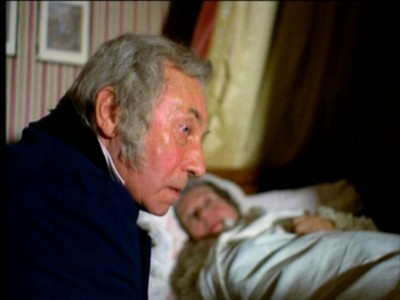
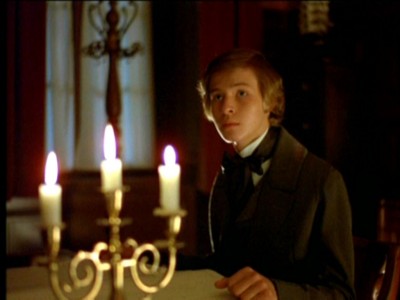
The DVD:
The Video:
In my previous review of Buddenbrooks, I noted the faded colors and the soft, fuzzy image of that full screen transfer. For this E1 transfer, the colors seem brighter, richer, and the screen image is noticeably sharper. The framing certainly looks correct, although that distinctly annoying image defect of frame stutter from the European PAL transfers to NTSC, is still present, and especially noticeable during any camera pan.
The Audio:
The Dolby Digital mono soundtrack is fine if unexceptional, with the original German dialogue cleanly (if incomprehensibly for me) heard. Thankfully, the English subtitles keep pace with the original German dialogue track.
The Extras:
There are no extras for Buddenbrooks.
Final Thoughts:
Long, long, long, but totally engrossing, this German TV miniseries captures the economic and spiritual decline of a wealthy, influential 19th century German mercantile family in stunning detail. It may prove slow for some, but if you enjoy immersing yourself in an epic novel, Buddenbrooks competently recreates that experience. However, the DVD transfer does compromise your enjoyment (that PAL transfer shutter effect is seriously annoying), so I can only recommend a rental for Buddenbrooks, with a big warning on the video.
Paul Mavis is an internationally published film and television historian, a member of the Online Film Critics Society, and the author of The Espionage Filmography.


|
| Popular Reviews |
| Sponsored Links |
|
|
| Sponsored Links |
|
|
| Release List | Reviews | Shop | Newsletter | Forum | DVD Giveaways | Blu-Ray | Advertise |
|
Copyright 2024 DVDTalk.com All Rights Reserved. Legal Info, Privacy Policy, Terms of Use,
Manage Preferences,
Your Privacy Choices | |||||||









